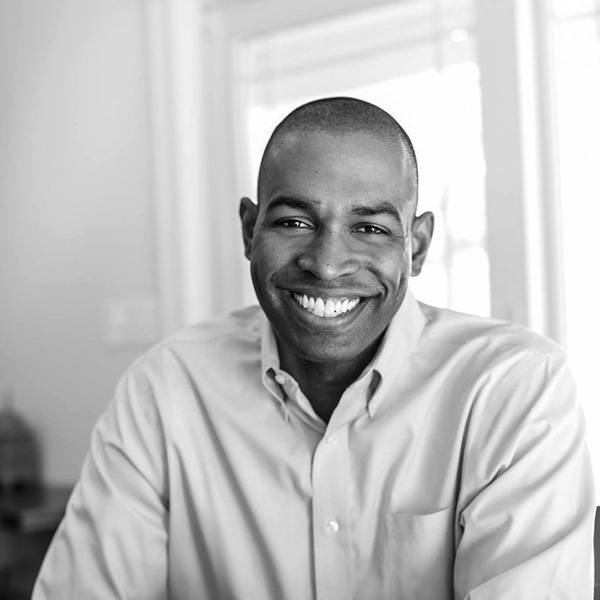News & Issues February-March 2022
Local House race could be bellwether
National parties eye Delgado’s seat in battle for Congress


U.S. Rep. Antonio Delgado, left, faces a potentially strong challenge from Dutchess County Executive Marcus Molinaro, right, as he seeks a third term in New York’s 19th Congressional District.
By MAURY THOMPSON
Contributing writer
The Hudson Valley congressional race taking shape between U.S. Rep. Antonio Delgado and challenger Marcus Molinaro could wind up among the key contests nationally that determine control of the House of Representatives for the next two years, political experts say.
Delgado, D-Rhinebeck, is seeking a third term in November amid a political climate in which Democrats are struggling nationally. President Biden’s job approval has been lagging in the polls, and historically the party of an incumbent president often loses congressional seats in midterm elections.
“Incumbent Democrats are certainly more vulnerable this election cycle,” said Hank Sheinkopf, a Democratic strategist in New York City. “It’s going to be a hard race.”
Molinaro, who has been the Dutchess County executive for the past decade, is considered a potentially formidable challenger who gained a statewide profile as the Republican candidate for governor in 2018.
“Both will be well-known campaigners,” said former Rep. John Faso, R-Kinderhook, whom Delgado unseated in 2018. “It’s definitely going to be a race to watch.”
New York’s 19th Congressional District, which stretches from Rensselaer and Columbia counties southwest to the Pennsylvania border, has been one of the most competitive in the state over the past decade. In the 2020 presidential race, for example, Biden carried the district by about one-half of a percentage point, the narrowest margin in New York, according to an analysis by the liberal online forum Daily Kos.
Under a reapportionment plan that emerged at the end of January and appeared headed for swift passage in the Democratic-controlled Legislature, the district would be extended farther west to encompass the cities of Binghamton and Utica. One early analysis estimated that the addition of these Democratic-leaning cities as well as the city of Rensselaer would boost the district’s narrow overall Democratic enrollment advantage by several percentage points.
These changes benefit Delgado, but the district’s political balance might still be close enough for it to remain a swing district in some years. In addition, the incumbent will have to introduce himself to new voters in communities that are largely unfamiliar with his record.
Clash of two moderates
Although this year’s fight for control of Congress is being cast in many places as an ideological battle between progressive Democrats and conservative Republicans loyal to former President Donald Trump, both Delgado and Molinaro have reputations as moderates within their respective parties.
And in their public comments, both candidates tend to steer clear of controversy and instead stress their interest in serving constituents and the needs of the district.
In an interview last month, Molinaro said the race isn’t about personalities but about bringing functionality to federal government.
“I have no ill will toward Antonio Delgado,” he said.
Molinaro, 46, was born in Yonkers and earned an associate’s degree at Dutchess Community College. He first made political headlines in 1995, when he was elected village mayor in Tivoli at the age of 19, making him the youngest mayor in the nation at the time. He was re-elected mayor five times and later served as a state assemblyman for five years before winning his first term as county executive in 2011.
“I’ve spent every day of my adult life making government function for the good of people,” he said.
In a similar vein, Delgado, in a telephone town hall on Jan. 18, described how 10 bills he had sponsored were signed into law in 2019 and 2020, while Trump was president, along with eight bills in 2021 after Biden took office.
“The focus is always on delivering for communities at home,” he said.
Delgado’s campaign said he had a busy schedule and was not available over a five-day period in January to be interviewed for this report. A subsequent request to speak with a campaign spokesman was not returned.
Delgado, 45, is a native of Schenectady who completed his bachelor’s degree at Colgate University, then earned a Rhodes scholarship to Oxford and a law degree at Harvard. He made his first bid for elective office in 2018, when he prevailed in a seven-candidate Democratic primary for the right to challenge Faso.
He defeated Faso with 51 percent of the vote after a campaign that focused in part on Faso’s support for repealing the Affordable Care Act. In winning that race, Delgado became the first person of African-American or Hispanic descent to be elected as a member of Congress from upstate New York. Two years ago, he won a second term with about 55 percent of the vote against Kyle Van De Water, a Millbrook lawyer who had served eight years in the Army in Afghanistan.
Molinaro won 53 percent of the district’s vote in his 2018 race for governor, although he lost to incumbent Andrew Cuomo by more than 20 percentage points statewide.
Assessing a record
Perhaps not surprisingly, partisans on both sides describe their candidate as the true moderate in the race — and cast the opposition as more extreme.
“I really wouldn’t characterize Marcus Molinaro as a moderate,” said Anne Hart, the Sullivan County Democratic chairwoman.
She said Delgado has been successful in dealing with issues that have bipartisan appeal, such as expanding broadband service and sustaining local agriculture.
“He has a great deal of compassion and an ability to listen,” Hart said.
In contrast, Faso, who is now a consultant to the state Conservative Party, described Delgado as “a very dedicated liberal who keeps his views quiet.”
He said Molinaro has been widely known as an advocate for the disabled, dating back to when he served in the Assembly.
“He’s a center-right Republican,” Faso said.
Asked if he considered himself a moderate, Molinaro responded, “I’m pragmatic.”
In rankings compiled by various interest groups, Delgado has tended to vote with his fellow Democrats on labor and environmental issues but has sometimes parted ways with his party on matters of business and commerce.
He received a 71 percent grade on the U.S. Chamber of Commerce scorecard for his first term, based 80 percent on his voting record, 10 percent on bills he sponsored and 10 percent on bipartisan engagement. By comparison, the group gave a 50 percent score to House Speaker Nancy Pelosi and 96 percent to House Minority Leader Kevin McCarthy.
Delgado’s score from the U.S. Chamber of Commerce was the eighth highest of any Democrat in the House and the second highest score of any Democrat in New York, three percentage points behind Kathleen Rice of Nassau County.
He also received a 100 percent grade on the AFL-CIO scorecard for his votes on labor issues for his first term, as well as a 100 percent score on the League of Conservation Voters scorecard.
Delgado received a score of zero for his first three years in office, as did all other House Democrats, on the latest scorecard of Heritage Action for America, a conservative political action and education organization.
GovTrack.us, a government information tracking website, ranks Delgado as one of the most moderate house members based on his sponsorship of legislation.
As of Jan. 24, 16 of the 22 bills Delgado personally sponsored so far this session had bipartisan co-sponsors, according to the Library of Congress government information website.
“I try to create a lane where I do have the opportunity to engage, in good faith, with all of my colleagues,” Delgado said at the Jan. 18 town hall.
Molinaro said co-sponsoring legislation with colleagues of the other party is not enough — and that a House member needs to be vocal about issues, even if it means criticism of one’s own party.
“This isn’t a time for low-profile, sort of get-along politics,” he said.
As an example, Molinaro said, Delgado recently spoke about supporting broadband legislation at a time when some funding still hasn’t been spent from a broadband program set up in the Obama administration. Delgado should be speaking out about the slow pace of bureaucracy, Molinaro said.
Attention, donations flow
Former U.S. Rep. Bill Owens, D-Plattsburgh, predicted this year’s race could be Delgado’s most challenging campaign so far.
“I think that’s going to be a difficult race,” Owens said. “Those are two well-known candidates. I’m hopeful that he will prevail.”
As of mid-January, before the new district lines were revealed, the race in the 19th district was the only one in New York that the Democratic Congressional Campaign Committee had targeted as a priority. The National Republican Congressional Campaign Committee also targeted it as a priority race.
Owens said the outcome could turn in large part on how closely Molinaro aligns himself with former President Trump.
But Molinaro insisted voters are more concerned about issues such as the cost of living, education and public safety than they are about Trump.
“If Antonio wants to make it a race about anything else, I suggest he does that at his own peril,” he said.
Molinaro said he would not refuse an endorsement from Trump.
“Certainly, if the president wants to endorse me, the president can endorse me,” he said.
Over the past decade, voters in the 19th district have tended to reward moderate candidates of both parties, except for the two years that Faso was in office. Chris Gibson, a moderate Republican, held the seat for three terms until 2016, when he retired from politics in favor of academia. Faso defeated progressive Democrat Zephyr Teachout in an open-seat race that year before losing to Delgado two years later.
Sheinkopf, the Democratic strategist, said it’s no surprise Delgado has worked to cultivate a moderate record on which he can campaign for re-election this year.
Both Delgado and Molinaro have been raking in campaign cash.
Delgado’s campaign announced Jan. 11 that it had raised $700,000 in the fourth quarter of 2021 and had $5.4 million cash on hand as of Dec. 31.
Molinaro’s campaign reported $347,988 cash on hand as of Sept. 30, the date of its most recent filing with the Federal Election Commission. In an interview on Jan. 19, Molinaro would not say how much his campaign raised in the fourth quarter, although the campaign was due to report that total to the FEC by Jan. 31.
He said his fund-raising effort is “going very well,” though he criticized the campaign finance process in general.
